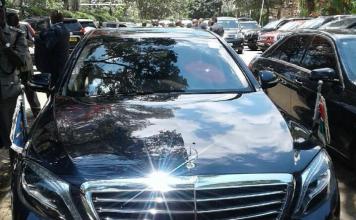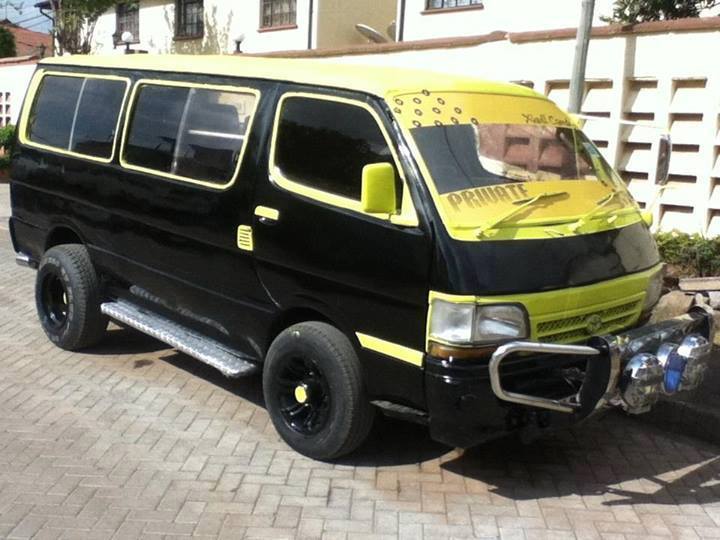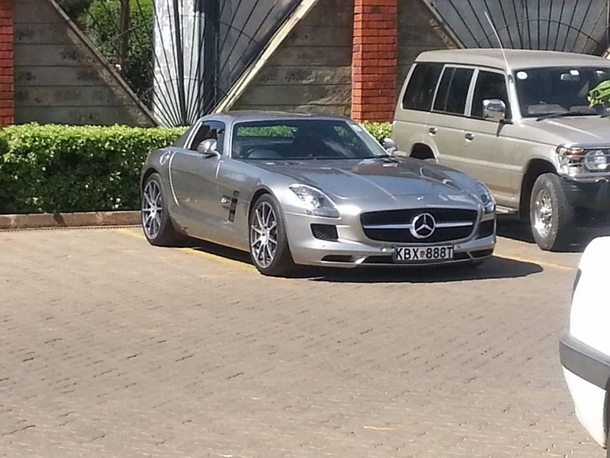By Victor Juma, [email protected]
Posted Tuesday, July 8 2014 at 21:17
IN SUMMARY
- Used car dealers accuse their new car rivals of supplying the taxman with inflated prices of models they sell for use in computation of taxes due, causing a steep rise in the prices of used cars.
- Car market followers say use of prices provided by the new car dealers is particularly unfair to traders of used vehicles because the latter actually sell their cars at substantially lower prices.
- Second-hand car dealers estimate losses associated with this price divergence at hundreds of thousands of shillings for each imported unit, with Toyota, Nissan and Mazda the most affected brands.
New and used car dealers are locked in a battle over the taxation of imported second-hand vehicles, turning the spotlight on the Kenya Revenue Authority’s (KRA) practices that are now seen as hurting segments of the market.
Used car dealers accuse their new car rivals of supplying the taxman with inflated prices of models they sell for use in computation of taxes due, causing a steep rise in the prices of used cars.
Car market followers say use of prices provided by the new car dealers is particularly unfair to traders of used vehicles because the latter actually sell their cars at substantially lower prices.
“The CRSP (current retail selling price) of some models are significantly higher than what one actually pays at local showrooms,” said Charles Munyori, the secretary-general of Kenya Auto Bazaar Association, the used car dealers’ lobby.
“This is unfair and unnecessarily raises costs for used car dealers and their customers,” he said. The higher benchmark prices that the KRA uses, therefore, have the impact of leaving used car importers with a larger tax burden than traders in new cars.
Second-hand car dealers estimate losses associated with this price divergence at hundreds of thousands of shillings for each imported unit, with Toyota, Nissan and Mazda the most affected brands.
Used car dealers reckon the provision of inflated benchmark prices to the taxman is a well-calculated scheme by new car dealers to drive up prices of used cars and render them uncompetitive in the price-sensitive market.
It was the coming into force of the new CRSP on June 1 that sparked the ongoing pricing battle — having increased taxes and final prices of some second-hand cars by margins of between Sh50,000 and Sh250,000.
Used cars are generally charged import duty at the rate of 25 per cent, excise duty at 20 per cent and valued added tax of 16 per cent, payable cumulatively and in that order.
The KRA calculates the value of a car based on the CRSP for the model, adjusted for depreciation at the rate of 10 per cent per year. Insurance and freight charges are added to the adjusted CRSP to arrive at the customs value.
Imports of used cars are capped at eight years from the date of manufacture and most importers prefer to ship in seven-year-old models that attract the lowest taxes.
A higher reference price, therefore, has the effect of inflating taxes and the ultimate yard prices of second-hand cars.
The KRA is, for instance, using a CRSP of Sh3.55 million for a 1.5 litre Toyota Corolla NZE running on petrol, according to used car dealers but a showroom version of the model at Toyota Kenya is priced at Sh2.9 million, fixing its CRSP at Sh650,000 higher than the market price.
That CRSP inflation in turn amounts to payment of additional charges and custom value consequence of Sh158,017.
At a price of Sh3.55 million, the model fetches a custom value of Sh489,655 and attracts additional charges of Sh373,362 for a total tax price of Sh863,017 for any such model imported before dealers have added their markups.
Assuming a price of Sh2.9 million, the model would attract Sh305,000 in taxes on a custom value of Sh400,000 and a total cost of Sh705,000, excluding profit margins.
New vehicle dealers say the price variations arise from the fact that the KRA’s CRSP only reflects a snapshot of their operations. The benchmark prices are static and do not capture changes in showroom prices (arising from factors such as exchange rate or competition) over the course of the year.
“I’m not surprised that the CRSP may be different from showroom prices,” said Dennis Awori, the Toyota Kenya chairman.
“KRA asks for pricing information at a certain time and does not update it for months. In the interim period, prices change due to factors such as foreign exchange rates but that is not reflected in the taxman’s records.”
Mr Awori, however, accused used car traders of falsifying their CRSPs by large margins, hurting the new car traders.
“The CRSP for some used car models is lower by up to a third compared to auction prices in source markets like Japan, giving used car dealers an undue advantage,” he said.
To solve the problem, the Toyota Kenya chairman suggests the taxman should rely on the overseas auction prices to arrive at the custom value of used imports. The KRA declined to comment on this story.
While the KRA has a detailed CRSP list covering 2,100 models, sources told the Business Dailythat there is significant arbitrariness in computation of the relevant taxes.
“There can be a price difference of up to Sh5 million for a single model due to variations in features, fuel, and quality of materials.
KRA often picks the highest CRSP price and applies it indiscriminately on such units,” said a source who did not want to be named due to the sensitivity of the matter.
“This means that you can suffer higher taxation if your car is on the lower side of the model’s price range,” the source added.
The rivalry between new and used car dealers comes at a time when the second-hand units have increased their dominance of the Kenyan market, riding on increased demand from young professionals and owners of small businesses.
Total car sales peaked at 65,005 units last year, with used imports accounting for more than 90 per cent of the demand.
Sales of new vehicles, including cars and trucks, stood at 14,542 units in the same period. The second-hand car market is dominated by individuals and small dealerships.
New car dealers have relied heavily on orders from the government, private companies and high net worth individuals who buy the units that are mostly priced from Sh2 million and up to Sh27 million.





![[PHOTOS] Top 20 Used Cars to Avoid Buying in Kenya](../../../blog/wp-content/uploads/2013/11/top-used-unreliable-cars-to-avoid2-80x60.jpg)
![[PHOTOS] Top 20 Used Cars to Avoid Buying in Kenya](../../../blog/wp-content/uploads/2013/11/top-used-unreliable-cars-to-avoid2-100x70.jpg)



